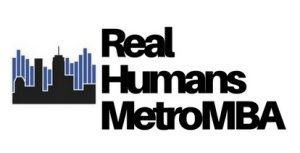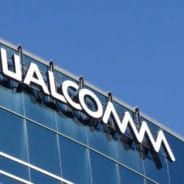Search results for :
MBA Recruiters: What Does General Mills Want From Business School Students?
You have probably eaten a General Mills product at some point. The maker of Cheerios, Nature Valley, Betty Crocker, Yoplait, Annie’s Homegrown, and Old El Paso products operates in more than 100 countries, producing and marketing more than 100 consumer brands. But it may surprise you knowing that an MBA can directly link you to a General Mills career. Continue reading…
York Schulich’s Groundbreaking Building Opens Its Doors, and More – Toronto
Toronto‘s finest business schools have spent the new year making positive contributions to the fast-changing world of business education. We’ve laid out some of the high points.
How Business Schools Are Adapting to the Changing World of Work – CBC News
In the age of information, the business arena is changing at record pace. In order to keep up, Canadian business schools are shifting focus from concrete skills to abstract ones. Creativity and innovation, for example, are at the forefront of the curriculum for schools like Western University Canada’s Ivey Business School. In fact, Ivey recently staff conducted 250 interviews with international industry leaders in order to glean which skills are in high demand in today’s marketplace.
“Although people do need to have the technical literacy that’s probably higher than before—the skills that are really demanded are the soft skills that will allow them to adapt,” says Mark Vandenbosch, acting Ivey Dean. Among the most important skills, Vandenbosch listed “creativity, grit, teamwork … and decision-making skills.”
“We provide a lot of support post graduation for those who want to come back at a later time to start a venture two, three, or four years later.”
Learn more about the demand for soft skills in the marketplaces here.
New Schulich School Building Opens at Toronto’s York University – Canadian Architect
On January 11, York University’s Schulich School of Business opened the doors of the Rob and Cheryl McEwen Graduate Study & Research Building. The building, designed by Baird Sampson, is among the most environmentally efficient academic buildings in North America. Funding from the Canadian Government’s Post-Secondary Institutions Strategic Investment Fund, Schulich’s Leading Change fundraising campaign, and a generous donation from Rob and Cheryl McEwen made the $50 million project possible.

The all new Rob and Cheryl McEwen Graduate Study & Research Building, opened Jan. 11 at the York University School of Business.
The building will house Schulich’s Research Office, as well as the Centre of Excellence in Responsible Business, the Schulich Centre for Global Enterprise, the Brookfield Centre in Real Estate and Infrastructure, and the newly-established Centre of Excellence in Business Analytics and Artificial Intelligence.
You can read more about the new York Schulich building addition here.
New Arrival to Canada Finds What He Was Missing – The Globe and Mail
Voyt Kryzchylkiewicz moved to Canada from Johannesburg to pursue his EMBA at University of Toronto’s Rotman School of Management and launch a business venture. In his first blog entry for EMBA Diary, he discusses those challenges and lessons of the past year of his life.
Before his move to Canada, Kryzchylkiewicz served as a board member at several companies in Europe and Africa. However, his experience with Canadian companies was limited, and he did not meet the criteria to be considered for similar positions in his new home. Kryzchylkiewcz entered Rotman with the hope of developing a professional network in Canada.
“While building my knowledge through Rotman has indeed proved valuable, the real benefits of the EMBA are the relationships that I have made, both business and personal,” Kryzchylkiewicz says. “This has already propelled my business forward and provided me with significant opportunities that I would not have had otherwise.”
Learn more about Kryzchylkiewicz’s experience here.
Top New Consulting MBA Jobs at Non-Big Four Firms
While it’s great to aim for the stars, not every MBA can and will land a job at one of the Big Four firms of KPMG, Ernst & Young, Deloitte, and PricewaterCoopers. However, there are plenty of other new MBA jobs available at other big-name firms. Here’s a look at some of the best new MBA jobs open at companies like Accenture, Wolters Kluwer, BCG, and more. Continue reading…
Hybrid MBA
The College of New Jersey School of Business Hybrid MBA Program Structure
The MBA program is offered in a hybrid format (online and face-to-face), which will allow students to enroll in the MBA program without disrupting their personal and professional obligations.
Students meet in class for eight hours on Saturdays, six times in the fall and spring, plus four times in the summer. When not meeting face-to-face, students will complete their coursework online. Winter courses will be offered 100 percent online.
Curriculum
The Master of Business Administration degree requires 42 academic credits (approximately 14 courses). The lockstep curriculum is designed to be completed in two years. The T-Style curriculum delivers a focused specialization followed by the MBA Core. Specializations include Data Analytics, Finance, and Strategy, Innovation and Leadership.
Tuition, Scholarships, and Financial Aid
The College of New Jersey provides a high quality education at a lower than average cost than other schools of similar quality. The approximate total cost of the MBA program is $46,000.
Working professionals are encouraged to review their company benefits as many employers offer tuition reimbursement benefits. Additionally, students can apply for FAFSA or private loans.
Admissions
The following are required in order to apply to the TCNJ MBA program:
• Essay – should be no more than 500 words, detailing your interest in the MBA program and how it fits into your career goals.
• An earned bachelor’s degree from an accredited college or university; Official transcripts
• Two years or more of professional full-time work experience; Current resume
• 1 letter of recommendation (current or former supervisor)
• GMAT or GRE exam (waivers available, dependent on academic and professional background)
• Additional documents needed from international applicants seeking to study in the U.S. (TOEFL, etc.)
• $75 application fee
Students who graduated with a cumulative GPA of 3.5 or above and demonstrated quantitative competencies or have completed an advanced degree may be exempt from taking the required GMAT or GRE. Additionally, the GMAT or GRE exam may be waived for candidates with eight or more years of professional full-time work experience along with a cumulative GPA of 3.0 or above. Waivers will be considered case-by-case as the MBA Director grants or denies waivers based on their assessment of the applicant’s probability of success. Waiver requests should be sent to the MBA Director at mba@tcnj.edu.
Application deadlines are as follows:
Priority application deadlines are December 1, February 1, and April 1.
Applications will be reviewed on a rolling basis after April 1.
The MBA program admits students for fall semester start only.
The College of New Jersey, School of Business
History
Over the years The College of New Jersey has developed a tradition of graduating students well prepared for the changing business environment. TCNJ’s School of Business received its initial accreditation from AACSB International in 1997 and was fully re-accredited in 2017. A TCNJ business education will be an intellectually challenging and maturing experience that prepares students for their future careers, and to be responsible members of the broader social community.
Locations
TCNJ’s School of Business is located on the main campus in Ewing, NJ. The campus is situated in central New Jersey, and is approximately 15 minutes away from downtown Princeton. Additionally, TCNJ is conveniently located between New York City and Philadelphia metropolitan areas.
Facilities
The School of Business’ home is in the Business Building which include computer labs, meeting rooms and financial learning center (Bloomberg terminals).
Faculty
Our 41 faculty are dedicated teacher-scholars who bring both expertise and experience to the business classroom. All are recognized as experts in their fields, conducting innovative research into theory and practice that continually transforms the way business is understood. Many are distinguished for their professional careers, sharing direct insights into how products are developed, assets are invested, people are managed, and companies are guided to greater responsibility and prosperity.
Student Body
There are between 1200 and 1300 students currently enrolled in the College of New Jersey School of Business.
MBA Degrees
The College of New Jersey School of Business offers a Hybrid MBA program.
Inside the 2019 ‘U.S. News’ Best Online MBA Program Ranking
Where is the best online MBA program in the country? Who tops the charts when it comes to student engagement, student excellence, academic faculty, and more? The U.S. News & World Report just released its 2019 ranking for the “Best Online MBA Programs” in the US. The Online MBA programs at Indiana University’s Kelley School of Business and UNC Chapel Hill’s Kenan-Flagler Business School each came in tied at first place. Continue reading…
What Do You Do If You Can’t Afford an MBA?
An MBA is expensive. There’s no doubt about it. So, how do you afford one?
According to U.S. News & World Report, the average cost of an two year, full-time MBA from one of the top business schools in the U.S. is over $130,000. That number doesn’t include the cost of boarding and books ($40,000), peripheral expenditures ($20,000), and the cost of lost income ($120,000). Altogether, your total opportunity cost could come to around $300,000 for a two-year MBA.
If that number sounds astronomical, you’re not alone. While earning an MBA can advance your career path and greatly enhance your future earnings, few people feel blasé about the upfront cost. However, with a little bit of research, insight, and know-how, paying for your MBA doesn’t have to be out of your reach.
If you’re a prospective MBA student worried that you can’t afford an MBA, here are a few ideas to help you pay.
New MBA Jobs at Major Health Care Providers and Pharmaceutical Firms
As Baby Boomers age and make up a more significant portion of the population, more Americans rely on health insurance providers and prescription drugs. In fact, Center for Disease Control stats show that more Americans are taking prescription drugs than ever. More patients and more drugs means a greater need for upper level health insurance and pharmaceutical professionals, and more new MBA jobs in these fields.
As with any complex industry, healthcare providers and pharmaceutical manufacturers require new hires with analytical abilities, business acumen and problem solving skills to help innovate and lead these firms into the future. Here are just a few new MBA jobs for those looking to enter healthcare provider and pharmaceutical fields.
Continue reading…
4 MBA Trends to Look Out For In 2019
Recently, we discussed about most important numbers of the previous year. MBA application rates were declining, average salaries are on the upswing, gender equity took major steps, technology and products/services jobs are jumping, and GMAT scores continue to rise. But what does all this mean for 2019?
Are there any MBA trends to look out for in 2019 and what can you expect? Continue reading…
New Kellogg Study Reveals Common Entrepreneurial Traits
When most people think of the “ideal” entrepreneur, they picture someone like Mark Zuckerberg, an individual who is young, ambitious, and nonconformist. They imagine someone who is eager to change the status quo. We tend to mythologize these young disrupters as the consummate startup founder with these common entrepreneurial traits.
However, a recent research study from Northwestern University Kellogg School of Management has revealed that’s not the case at all. The reality is that most successful entrepreneurs are actually middle-aged, have extensive experience in their industry or sector, and their serious innovation arises from the result of their deep experience.
Entrepreneurs Are Knowledgeable
“Those with industry experience are much more likely to hit a home run than those who come from outside the sector,” explains co-author Benjamin F. Jones, Professor of Strategy and Entrepreneurship. He goes on to say, “If you’re familiar with the ins and outs of an industry, having worked in it, and you have a strong professional network, your odds of success are greater.”
Most successful entrepreneurs have to know the products, customers, suppliers, competitors, and channels of distribution well. They have to know what works and what doesn’t.
For example, Ray Kroc gained years of experience in the restaurant industry before he experienced his breakthrough success with McDonald’s. The same goes for David Duffield, the founder of PeopleSoft. He began his career understanding the nitty-gritty details of the software industry before he made his innovations.

Entrepreneurial breakthroughs mostly happen to people in their 40s, like David Duffield, founder of PeopleSoft, according to new Northwestern Kellogg entrepreneurship research.
“I’ve studied age and creativity for a while, and there’s a pattern of Nobel Prize winners, inventors, artists, and innovative minds making breakthroughs in their 40s,” Jones says. “I don’t think it’s an accident that we see the same pattern in business. These are people who have been around for a while and seen what works.”
Entrepreneurs Learn from Every Experience
However, it’s just working knowledge of their industry that leads to entrepreneurial success; it’s the ability to learn from every experience. Successful startup founders need a combination of education, experience, and specific market knowledge to get their innovations off the ground.
There’s also a need for entrepreneurs to have access to an extensive network so that they can learn from those around them. Most founders work within their social networks to facilitate creation and to get their ventures up and running.
Entrepreneurs Try Again and Again
Finally, there’s the law of batting averages. The more chances an experienced entrepreneur takes, the greater the odds are that one of their opportunities will be successful. Not everyone is willing to keep trying even after a list of failed ventures. For example, Ray Krock was in his fifties before McDonald’s became a success. Before that, he struggled to get any of his ideas to take off.
“It’s a matter of probabilities,” Jones explains. “Those who study their industry and pay close attention have either learned some things through trial and error themselves, or learned by watching others. Maybe failure itself is a useful instructor. Or maybe it’s just about having more swings of the bat.”
You can read the full article on Kellogg Insight.
This article has been edited and published with permissions from its original source, Clear Admit.
Real Humans of the Rutgers Business School
When considering earning an MBA, a few priorities tend to stick out. Cost, career opportunities, flexibility, and educational value are all obvious sticking points. However, another crucial feature should matter more when it comes time to decide where you’ll go: return on investment.
The Rutgers Business School in New Brunswick and Newark, New Jersey, isn’t just the premiere MBA option in the Garden State (ranked 44th overall by U.S. News & World Report): it’s among the best return on investment opportunities you can find anywhere.

According to the Financial Times, which also ranks RBS among the best business schools in the world, the average salary jump for MBA grads is a staggering 112 percent. This return on investment figure bests some of the most recognizable programs in the world, including Dartmouth’s Tuck School of Business, the London Business School, and New York University’s Stern School of Business.
Part of the reason for such a pronounced ROI is, of course, the school’s ideal proximity to the New York City metro, offering students extensive opportunity advantages that other prestigious institutions struggle to compare to. Other provincial factors in the eye-popping ROI are the lauded areas of focus, including supply chain management (ranked 6th best in the country by U.S. News & World Report). When factored together, it may not be surprising to find a lot of diverse backgrounds studying at Rutgers Business School.
When talking with several current students, the litany of non-traditional students tends to stand out, including a radio DJ tired of an exhaustive industry, a theater vet, a former fifth grade music teacher looking to break out in an entirely new field, and more. Read on to see their stories and what the future may hold for life after an MBA.
The Northeast Region’s Top Accelerated MBAs
The numerous advantages of an accelerated MBA start with one that’s particularly appealing–low cost. And while accelerated programs are more affordable, they are by no means less valuable or challenging than two year programs. In fact, they can be quite intensive in that they allow students to leverage their undergrad business education directly to MBA studies by covering core requirements.
New MBA Jobs in the Energy Sector
If money makes the world go ‘round, the energy sector runs the machines that keep it going. With new energy sector jobs for MBAs popping up regularly, there are plenty of opportunities for recent graduates and current students. Check out some of the best new jobs at companies like Exxon, General Electric, and BP below: Continue reading…
Is There Room for MBA Graduates at Qualcomm?
Qualcomm is a San Diego tech company that specializes in the design of semiconductors, telecommunications equipment, and wireless telecommunications products and services. The company is also a top MBA recruiter. With so many MBAs flocking toward tech companies after graduation, what makes Qualcomm stand out? Continue reading…
MS in Marketing Analytics
University of Rochester Simon Business School MS in Marketing Analytics Overview
• Our expert faculty and rigorous curriculum will train you to understand, interpret, and communicate big data, so you’ll be prepared for a career in marketing, marketing research, pricing, business analytics and analysis, or sales management.
• This program offers the option to pursue an internship track, which will help you strengthen your résumé and gain professional experience before heading into your full-time role.
• The program is STEM-designated, which shows recruiters that you’ll arrive on the job with analytic tools and leadership skills that positively impact a company’s bottom line. In addition, the designation allows international students to work in the US for up to 36 months on a student visa, if hired in a STEM-eligible role.
• Get hands-on learning experience by joining Simon Marketing Association, which hosts an annual inter-school Simon Marketing Case Competition. Joining Simon Pricing Club is another great opportunity, which allows you to attend the Professional Pricing Society conference and inviting pricing industry leaders to campus.
Learn more about our MS in Marketing Analytics program details.
Class Profile
There are currently 75 students in the MS in Marketing Analytics program that are, on average, 22-years old. About 81 percent of the class is comprised of female students, with 19 percent male students. The GMAT range (80th percentile) is between 650–730, and the GPA range (80th percentile) is between 3.1–3.9. Students in the program have an average of six months of previous work experience.
Tuition, Scholarships, and Financial Aid
Tuition for the University of Rochester MS in Marketing Analytics is currently $67,250. More than 65 percent of MS in Marketing Analytics students receive scholarship support.
Admissions
Please include the following in order to apply:
• Online application
• Current résumé and work history
• One required essay (250-500 word limit)
• Applicant interesting fact (25 word limit)
• School-issued official transcripts, scanned and uploaded for each college attended
• Test-taker results for GMAT or GRE (including Analytical Writing Assessment), scanned and uploaded
• Contact information for two references who can provide a professional recommendation, if contacted
• $90 application fee
Simon Business School is honored to waive the application fee for active-duty military members and veterans and other eligible full-time MBA applicants.
International Applicants:
• Test-taker results for TOEFL or IELTS, scanned and uploaded (view school code here)
• Required of all international candidates except those who attended three or more consecutive years of post-secondary education taught solely in English and received a baccalaureate or master’s degree from a college or university where English was the language of instruction.
• Optional InitialView interview and writing sample—an excellent way to add dimension to your candidacy and demonstrate English proficiency.
Application deadlines are as follows:
October 15
January 5
February 15
March 31
May 1
MS in Accountancy
MS in Accountancy Overview
• Simon’s 150-credit-hour compliant Accountancy program educationally qualifies you to sit for the New York State CPA exam—but goes far beyond ordinary test preparation.
• This program offers the option to pursue an internship track, which will help you strengthen your résumé and gain professional experience before heading into your full-time role.
• Simon’s MSA program is STEM-designated, which shows recruiters that you’ll arrive on the job with analytic tools and leadership skills that positively impact a company’s bottom line. In addition, the designation allows international students to stay in the U.S. for up to 36 months on a student visa, if hired in a STEM-eligible role.
• Get hands-on experience by joining Simon Accounting Association, which provides networking initiatives for students pursuing long-term careers in accounting fields, and invites industry leaders to campus throughout the year.
Learn more about our MS in Accountancy program details.
Class Profile
There are currently 50 people in the MS in Accountancy program that are, on average, 22-years old. Female students make up about 80 percent of the MS in Accountancy class. The GMAT range (80th percentile) is between 620–710, and the GPA range (80th percentile) is between 3.1–3.7. Students in the program have an average of six months of previous work experience.
Tuition, Scholarships, and Financial Aid
Tuition for the program is currently $65,000. More than 70 percent of MS in Accountancy students receive scholarship support.
Admissions
Please include the following in order to apply:
• Online application
• Current résumé and work history
• One required essay (250-500 word limit)
• Applicant interesting fact (25 word limit)
• School-issued official transcripts, scanned and uploaded for each college attended
• Test-taker results for GMAT or GRE (including Analytical Writing Assessment), scanned and uploaded
• Contact information for two references who can provide a professional recommendation, if contacted
• $90 application fee
Simon Business School is honored to waive the application fee for active-duty military members and veterans and other eligible full-time MBA applicants.
International Applicants:
• Test-taker results for TOEFL or IELTS, scanned and uploaded (view school code here)
• Required of all international candidates except those who attended three or more consecutive years of post-secondary education taught solely in English and received a baccalaureate or master’s degree from a college or university where English was the language of instruction.
• Optional InitialView interview and writing sample—an excellent way to add dimension to your candidacy and demonstrate English proficiency.
Application deadlines are as follows:
October 15
January 5
February 15
March 31
May 1
Full-Time MBA
University of Rochester Simon Business School Full-Time MBA Overview
The innovative Simon Business School MBA curriculum is designed around your career success and allows you to:
• Take more electives in the first year, and take them earlier in your program of study.
• Travel through your curricular experience with a cohort of students with similar career interests.
• Enter the workforce as a polished professional by taking two required breadth electives designed to prepare you with the skills employers desire.
• Choose from 10 specializations organized in three tracks—finance, marketing, and consulting—as well as the opportunity to round out studies by choosing one or more minors, designed to provide a deeper understanding in 10 key areas.
• Pursue various hand-on learning opportunities, such as international immersions, case competitions, and project-based courses designed for you to work with a team to develop real business solutions for clients.
In addition, you can choose to pursue our STEM-designated MBA option, which shows recruiters that you’ll arrive on the job with analytic tools and leadership skills that positively impact a company’s bottom line. In addition, the designation allows international students to work in the US for up to 36 months on a student visa, if hired in a STEM-eligible role.
Learn more about our MBA curriculum.
Class Profile
The University of Rochester Simon Business School full-time MBA Class of 2022 features 126 total students that are, on average, 28-years old. About 58 percent of the class is male, while 42 percent is female, and 37 percent of the class is international. Forty-six percent of US students are African American, Hispanic American, or Native American.
On average, students enroll in the full-time program with 4.9 years of work experience a median GPA (80th percentile) between 2.8–3.7, and a GMAT score (80th percentile) between 540–720.
Tuition, Scholarships, and Financial Aid
Tuition for the full-time MBA at the Simon Business School is currently $48,000. About 85 percent of the full-time class receives scholarship support.
Admissions
Please include the following in order to apply:
• Online application
• Current résumé and work history
• One required essay (250-500 word limit)
• Applicant interesting fact (25 word limit)
• School-issued official transcripts, scanned and uploaded for each college attended
• Test-taker results for GMAT, GRE, or Executive Assessment (including Analytical Writing Assessment), scanned and uploaded (view school code here)
• Contact information for two references who can provide a professional recommendation, if contacted
• $90 application fee
Simon Business School is honored to waive the application fee for active-duty military members and veterans and other eligible full-time MBA applicants.
International Applicants:
• Test-taker results for TOEFL or IELTS, scanned and uploaded (view school code here)
• Required of all international candidates except those who attended three or more consecutive years of post-secondary education taught solely in English and received a baccalaureate or master’s degree from a college or university where English was the language of instruction.
Fall 2021 application deadlines are as follows:
October 15
January 5
February 15
March 31
May 1
The Trainee Grunt Work Dilemma, Explained by Northwestern Prof Luis Rayo
Working alongside colleague Drew Fudenberg—the Paul A. Samuelson Professor of Economics at MIT—Northwestern University Kellogg School of Management Professor of Strategy Luis Rayo asks, does the trainee grunt work dilemma make complete economic sense?
Kellogg Insight author John Pavlus talks with both Rayo and Fudenberg about their new research on the topic, “to determine whether the relationship most resembled an economic quid pro quo, or something more akin to a prolonged test of skill, or merely a rite of passage.”

“Master-level knowledge is extremely valuable, but also very difficult to transfer efficiently,” writes Kellogg Insight author John Pavlus.
The “fundamental economic problem” Rayo faced when he was studying under a professor during his undergraduate tenure is that “master-level knowledge is extremely valuable, but also very difficult to transfer efficiently.”
“Consider an idealized transaction between a master sushi chef and an unskilled protégé: the protégé, ideally, would simply ‘buy’ the expertise he wants for a fair price up front, just as he would for any durable good. Unfortunately, the cash value of the chef’s accumulated knowledge is likely to exceed any amount a novice could possibly afford.”
Rayo and Fudenberg find that if the trainee cannot immediately “pay” (hypothetically) for the training, then the person training them is not in a position to “drop everything” and help them learn. In contrast, if the person training them offers to let the trainee pay them back down the line, then the trainee has unfair leverage in the economic exchange.
“Given this economic impasse—a novice wishes to ‘buy’ knowledge that she cannot currently afford from a master who cannot reliably extract payment for it in the future—how can the two parties make their exchange?”
The (Potential) Trainee Grunt Work Solution
Rayo and Fudenberg’s potential solution is a mathematical model where “the master and novice simultaneously choose how much time and effort to expend working with each other.”
“One way to profit from your novice is to keep him around working for a long time by training him slowly,” Rayo tells Pavlus. “Maybe his brain would be able to learn all of your knowledge in one or two years, but you might take ten years.”
The trainee grunt work dilemma arises often early in the training process. Considering those starting their careers are not often economically in a stronger position than the person training them, the trainee needs to work, but doesn’t yet have the requisite knowledge to complete higher-level work. However, Rayo argues, there is a benefit.
“In professions where there’s a considerable amount of knowledge to transfer, the model predicts that you’ll tend to observe large amounts of menial work early in the relationship,” he says.
To curb instances where the trainer overworks the trainee, or forces them to do tasks that are not related to the productivity of the job (such as hazing), Rayo and Fudenberg argue regulations need to be in order.
“For example, in 2003 the Accreditation Council for Graduate Medical Education introduced rules restricting the average number of hospital work-hours for medical residents to 80 per week. But Rayo’s model predicts that this kind of regulation will simply induce the hospital ‘masters’ to extend the length of medical residencies to compensate. And there are, indeed, places where this is happening.”
Rayo says, “If you’re serious about regulating these employment relationships, the model shows that it’s better to limit hours worked and limit the overall length of the apprenticeship at the same time.”
While the thought of regulation makes some shudder, Rayo argues its for the greater good. “What masters lose from the regulation is less than what apprentices gain from it.”
Check out Pavlus’ story “Why Do Trainees Get Stuck with So Much Grunt Work?” over at Kellogg Insight.














